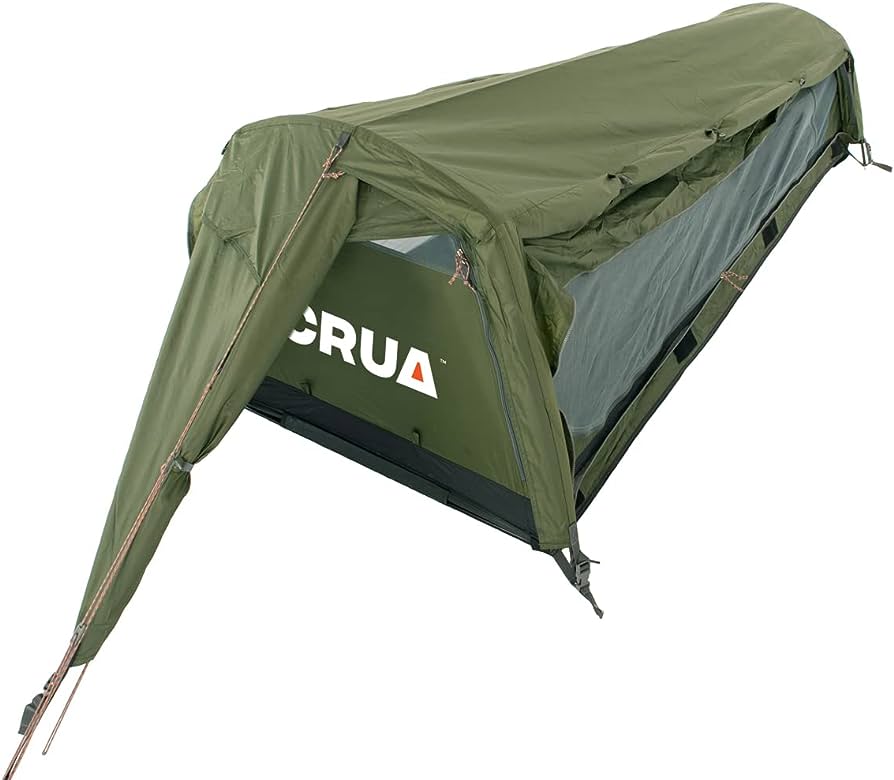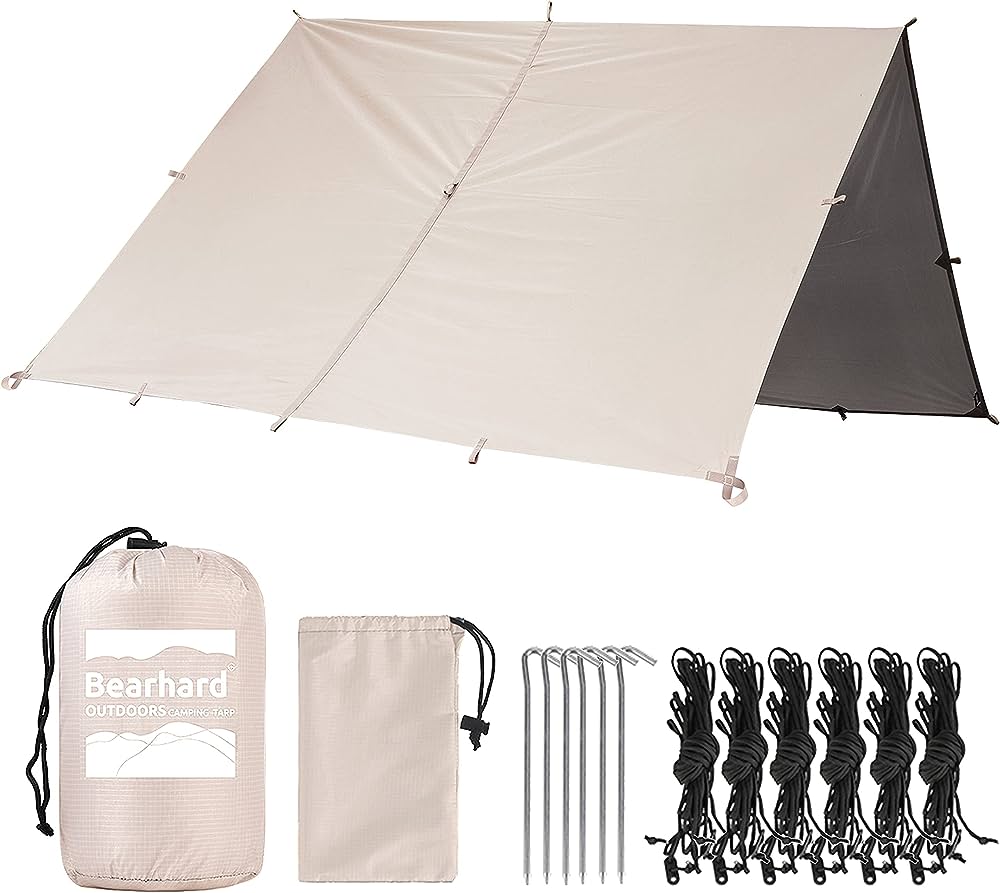- 8 Airplane Footrest Hammock!Travel comfortably - October 9, 2023
- top 7 Pool Float Water Hammock for a Relaxing Summer - October 9, 2023
- top 5 Space SaverSingle Hammock Stand Maximize Comfort and Space - October 9, 2023
Hammocks are better than tents for hiking due to their lightweight, portable, and versatile nature, providing a comfortable and convenient sleeping option in outdoor environments. Compared to tents, hammocks are easier to set up, require less space, and allow for better air circulation, resulting in a cooler sleeping experience.
Hammocks also eliminate the need for carrying heavy sleeping pads or insulation, saving hikers valuable weight in their backpacks. Furthermore, hammocks provide a unique opportunity to sleep closer to nature, with the ability to set up in trees or above uneven ground.
Whether it’s a quick overnight adventure or an extended backpacking trip, the benefits of using a hammock make it the superior choice for hikers seeking comfort, simplicity, and a closer connection to the outdoors.
The Benefits Of Hammocks For Camping
Hammocks have become increasingly popular among outdoor enthusiasts in recent years. Their unique design and functionality make them an excellent alternative to traditional tents. Whether you are a day hiker or an avid backpacker, hammocks offer a range of benefits that can elevate your camping experience. In this article, we will explore some of the key advantages of using hammocks for camping.
Comfort And Relaxation
One of the primary benefits of hammocks for camping is the unparalleled comfort and relaxation they provide. Unlike sleeping on the hard ground in a tent, hammocks allow you to sleep suspended in the air, cradled by the gentle sway of the fabric. This unique sleeping position helps alleviate pressure points and can result in a more restful sleep. Hammocks also eliminate the need for sleeping pads, saving precious space and weight in your backpack.
Lightweight And Portable
When it comes to backpacking and hiking, weight and portability are crucial factors to consider. Hammocks are significantly lighter than tents, making them a preferred choice for those looking to cut down on the weight of their gear. The lightweight nature of hammocks allows for easier maneuverability on the trail and reduces strain on your back and joints. Additionally, hammocks are compact and can be easily packed into a small stuff sack, taking up minimal space in your backpack.
Versatility In Different Terrain
Hammocks offer unparalleled versatility in different terrains, making them a suitable option for a variety of camping locations. Unlike tents that require a flat and level surface, hammocks can be easily set up in uneven or rocky terrains. This flexibility allows you to explore new and remote camping sites that may be inaccessible to tent campers. Whether you’re camping in the mountains, by a lake, or in dense forests, a hammock provides a comfortable sleeping solution in any environment.
Environmental Impact
Another advantage of hammocks for camping is their minimal environmental impact. Unlike tents, hammocks do not require stakes to be driven into the ground, which can disrupt natural habitats. Additionally, hammocks leave no trace behind, as there is no need to clear a space for setting up. This eco-friendly aspect of hammock camping aligns with the principles of Leave No Trace and allows outdoor enthusiasts to enjoy nature responsibly.
The Advantages Of Tents For Camping
Protection From Elements
Tents provide exceptional protection from the elements, making them an ideal choice for camping in various weather conditions. Whether it’s raining, windy, or sunny, a tent shields you from the external elements, keeping you comfortable and dry. With a sturdy rainfly and a waterproof floor, tents offer reliable protection against rain, snow, and even insects. Additionally, tents provide insulation, keeping you warm during cold nights and shielding you from the hot sun during summer trips. Investing in a tent ensures that you have a safe and secure shelter, regardless of the weather conditions.
Privacy And Security
Privacy is another significant advantage that tents offer over hammocks when it comes to camping. Tents provide a private space where you can change clothes, sleep, or simply have some alone time. Unlike hammocks, which are open and exposed, tents offer a closed-off environment that allows you to enjoy a sense of privacy and security. This is particularly important when camping in crowded areas or popular campsites. Moreover, tents provide an extra layer of security, providing a physical barrier between you and any potential intruders or wildlife that may wander close to your campsite.
Additional Storage Space
When it comes to camping, having enough storage space is crucial. Tents offer ample storage options, allowing you to safely keep your gear, backpacks, and other belongings organized and protected from the elements. Most tents come with vestibules or gear lofts that provide designated areas to store your equipment, making it easily accessible whenever you need it. This additional storage space is especially practical on longer camping trips when you need to bring more supplies or when camping with multiple people, ensuring everyone’s gear is well-organized and readily available.
Suitable For Group Camping
Tents are particularly well-suited for group camping trips. They provide enough space to comfortably accommodate several people, making it easier to camp with friends, family, or a larger group. Many tents come in different sizes and designs, including spacious family tents and multi-room tents, ensuring that everyone has their own designated space. Group camping in tents also allows for a greater sense of community and shared experiences, as everyone can gather in one central area for meals, games, or simply spending time together.
Factors To Consider When Choosing Between Hammocks And Tents
Deciding between a hammock and a tent for your camping adventures can be a difficult choice. Both options have their advantages and disadvantages, and considering certain factors can help you make the right decision. In this article, we will explore the key factors to consider when choosing between hammocks and tents.
Personal Preference And Comfort
One of the most important factors to consider when deciding between a hammock and a tent is personal preference and comfort. Some campers find the gentle sway and cocoon-like feeling of a hammock to be incredibly relaxing, while others prefer the stability and familiarity of a traditional tent. It’s crucial to consider your own comfort level and sleeping habits to determine which option would best suit your needs.
In terms of personal preference, some individuals may have physical limitations or health conditions that make one option more suitable than the other. For instance, hammocks can provide relief for those with back pain or joint problems due to their ergonomic design. On the other hand, tents are typically more spacious and can accommodate larger groups or individuals who prefer a wider sleeping area.
Climate And Weather Conditions
The climate and weather conditions of your camping destination play a significant role in determining whether a hammock or a tent is the better choice. Hammocks are a popular option in warm and tropical climates as they offer excellent ventilation and allow you to sleep above the ground, away from insects and dampness. On the other hand, tents are ideal for colder climates, providing insulation and protection against rain, wind, and even snow.
Here’s a quick summary of the climate suitability for each option:
| Hammock | Tent |
|---|---|
| Warm and tropical climates | Cold and wet climates |
| Well-ventilated | Insulation and protection |
| Elevated sleeping position | Ground-level sleeping |
Duration Of Camping Trip
The duration of your camping trip is another crucial factor to consider when choosing between a hammock and a tent. If you’re planning a short outdoor adventure, a hammock can offer a lightweight and compact sleeping option. Hammocks are easy to set up and take down, which can save valuable time on shorter trips. Conversely, for longer camping trips, a tent provides more storage space and room to move around, allowing you to keep your belongings organized and sleep comfortably for extended periods.
Camping Location And Terrain
The camping location and terrain determine the practicality and suitability of both hammocks and tents. Hammocks are perfect for campsites with trees, as they rely on sturdy anchor points for setup. They are an excellent choice for camping in forests, along rivers, or anywhere with a dense tree canopy. However, if you’re planning to camp in open areas, deserts, or rocky terrains without suitable trees for hammock suspension, a tent would be a more viable option. Tents can be set up on any flat surface, providing versatility and adaptability to various camping destinations and terrains.
Comparison: Hammocks Vs. Tents
When it comes to outdoor adventure, there is often a debate about whether hammocks or tents are better for camping and hiking. Both have their advantages and disadvantages, and it ultimately depends on personal preference and specific needs. In this comparison, we will delve into the key factors to consider when choosing between hammocks and tents: sleeping comfort and support, set up and ease of use, durability and longevity, as well as cost and affordability.
Sleeping Comfort And Support
One of the most important factors to consider when deciding between a hammock and a tent is the level of sleeping comfort and support they provide.
Hammocks, with their suspended design, often offer a unique and comfortable sleeping experience. As you gently rock back and forth, you can drift off to sleep with ease. Moreover, hammocks alleviate pressure points by distributing your weight evenly, reducing the likelihood of waking up with a sore back or stiff joints.
On the other hand, tents provide a more traditional sleeping experience. With a flat surface and padding, sleeping bags, and sleeping pads, tents offer a familiar and cushioned environment. Tents also provide better protection from the ground, insulation from cooler temperatures, and privacy.
In terms of sleeping comfort and support, both hammocks and tents have their advantages. It ultimately comes down to personal preference and the specific needs of each individual.
Set Up And Ease Of Use
Setting up camp quickly and easily can greatly enhance your hiking and camping experience. Comparing hammocks to tents, it is evident that there are differences in terms of set up and ease of use.
Hammocks are known for their simplicity and speed of set up. With just a few straps and carabiners, you can have your hammock securely hung between two trees within minutes. This easy set up is not only convenient but also useful when you arrive at your campsite late in the day or during inclement weather.
Tents, on the other hand, typically require more time and effort to set up properly. Pitching a tent involves assembling poles, fixing stakes, and securing the rainfly. While this process may take longer, it can be a rewarding activity for some campers who enjoy the process of setting up their shelter.
In terms of set up and ease of use, hammocks offer a clear advantage in terms of simplicity and speed, while tents require more time and effort.
Durability And Longevity
When investing in camping gear, it is essential to consider the durability and longevity of the equipment.
Hammocks are often made from durable materials, such as parachute nylon or ripstop nylon, which are designed to withstand various weather conditions. However, they may be susceptible to tears from branches or sharp objects if not used carefully. Additionally, constant tension and stress on the suspension system of hammocks can cause wear and tear over time.
Tents, on the other hand, are typically made from more robust materials, such as nylon or polyester, and come with additional features like reinforced seams and waterproof coatings. These features make tents highly durable and capable of withstanding harsh environmental conditions.
In terms of durability and longevity, tents have the upper hand due to their sturdier construction and additional protective features.
Cost And Affordability
Cost is often a deciding factor when choosing between hammocks and tents. Understanding the financial implications of each option is crucial, particularly for budget-conscious adventurers.
Hammocks generally tend to be more affordable compared to tents. A basic hammock setup, including straps and carabiners, can be relatively inexpensive, making it an attractive choice for those on a tight budget.
Tents, on the other hand, can vary significantly in price depending on their size, brand, and features. While basic tents can be affordable, high-quality and feature-rich models can come with a higher price tag. However, it is essential to consider the long-term investment and the durability of the tent when comparing costs.
In terms of cost and affordability, hammocks are often the more budget-friendly option, but it is crucial to consider the value and longevity of the equipment.
Making The Ultimate Choice: Personal Tips And Recommendations
When it comes to choosing between a hammock and a tent for your hiking adventures, assessing your individual needs and preferences is essential. Factors such as comfort, versatility, weight, and durability should be taken into consideration. In this section, we will provide some personal tips and recommendations to help you make the ultimate choice.
Assessing Individual Needs And Preferences
Before making a decision, it’s important to assess your individual needs and preferences. Consider the following:
- Climate and weather conditions: If you frequently hike in areas with unpredictable weather, a tent may provide better protection against rain, wind, and extreme temperatures.
- Sleeping preferences: If you prefer sleeping on a flat surface, a tent might be more suitable. On the other hand, if you enjoy the gentle sway and openness of a hammock, it could be the perfect choice for you.
- Comfort: While tents provide a more conventional and familiar sleeping environment, some hikers find hammocks to be incredibly comfortable and relaxing.
- Weight and portability: If you prioritize lightweight gear and ease of transportation, hammocks are generally lighter and more compact than tents.
Trying Out Different Options
One of the best ways to determine which option is better for you is by trying out different options. Consider borrowing or renting both a hammock and a tent to experience the pros and cons of each firsthand. Spend a night or two in each setup to see how they feel, ensuring that your decision is based on your personal comfort and preferences.
Seeking Advice From Experienced Campers
Another valuable source of information is seeking advice from experienced campers. Reach out to friends, fellow hikers, or online hiking communities to gather insights and recommendations. They can provide valuable tips, share their experiences, and help you make an informed decision.
Experimenting With Hybrid Solutions
It’s worth considering hybrid solutions that combine the best of both worlds. Some backpacking enthusiasts have found success in using a hammock for sleeping and a lightweight tent for storage or as a shelter during extreme weather conditions. Experimenting with such hybrid solutions allows you to customize your setup according to your specific needs and preferences.
Remember, there is no one-size-fits-all answer to the hammock versus tent debate. Both options have their advantages and disadvantages, so it ultimately comes down to what suits you best. Assess your needs, try out different options, seek advice, and don’t be afraid to get creative with hybrid solutions. Happy hiking!

Credit: www.amazon.com
Frequently Asked Questions Of Hiking: Hammocks Vs Tents: Which Is Better And Why
Q: Are Hammocks Better Than Tents For Hiking?
A: Hammocks offer lightweight portability and a unique camping experience, while tents provide more protection and space.
Q: Can You Sleep Comfortably In A Hammock While Hiking?
A: Yes, hammocks provide a cozy and comfortable sleep experience, thanks to their ergonomic design and ability to conform to your body.
Q: Do Tents Offer Better Protection From The Elements?
A: Tents are designed to shield you from rain, wind, and bugs, providing superior protection compared to open-sided hammocks.
Q: Are Hammocks More Convenient To Carry On A Hiking Trip?
A: Hammocks are lighter and more compact than tents, making them easier to pack and carry during your hiking adventures.
Q: Can Hammocks Harm The Environment While Hiking?
A: As long as you practice Leave No Trace principles, such as using tree-friendly straps, hammocks can be an eco-friendly choice for hiking.
Q: Do Tents Offer More Privacy Compared To Hammocks?
A: Tents provide enclosed spaces, allowing for more privacy, while hammocks expose you to the surrounding environment.
Conclusion
After exploring the benefits and drawbacks of both hammocks and tents, it is clear that the choice ultimately depends on individual preferences and specific hiking scenarios. Hammocks can offer a lightweight and comfortable sleeping option, while tents provide a secure and protected shelter.
Whether you prioritize convenience, versatility, or durability, understanding your hiking needs will help you make an informed decision. So, consider your comfort, weather conditions, and terrain before embarking on your next hiking adventure.




Pingback: Hang Anywhere: 5 Best Lightweight Portable Hammock Stand